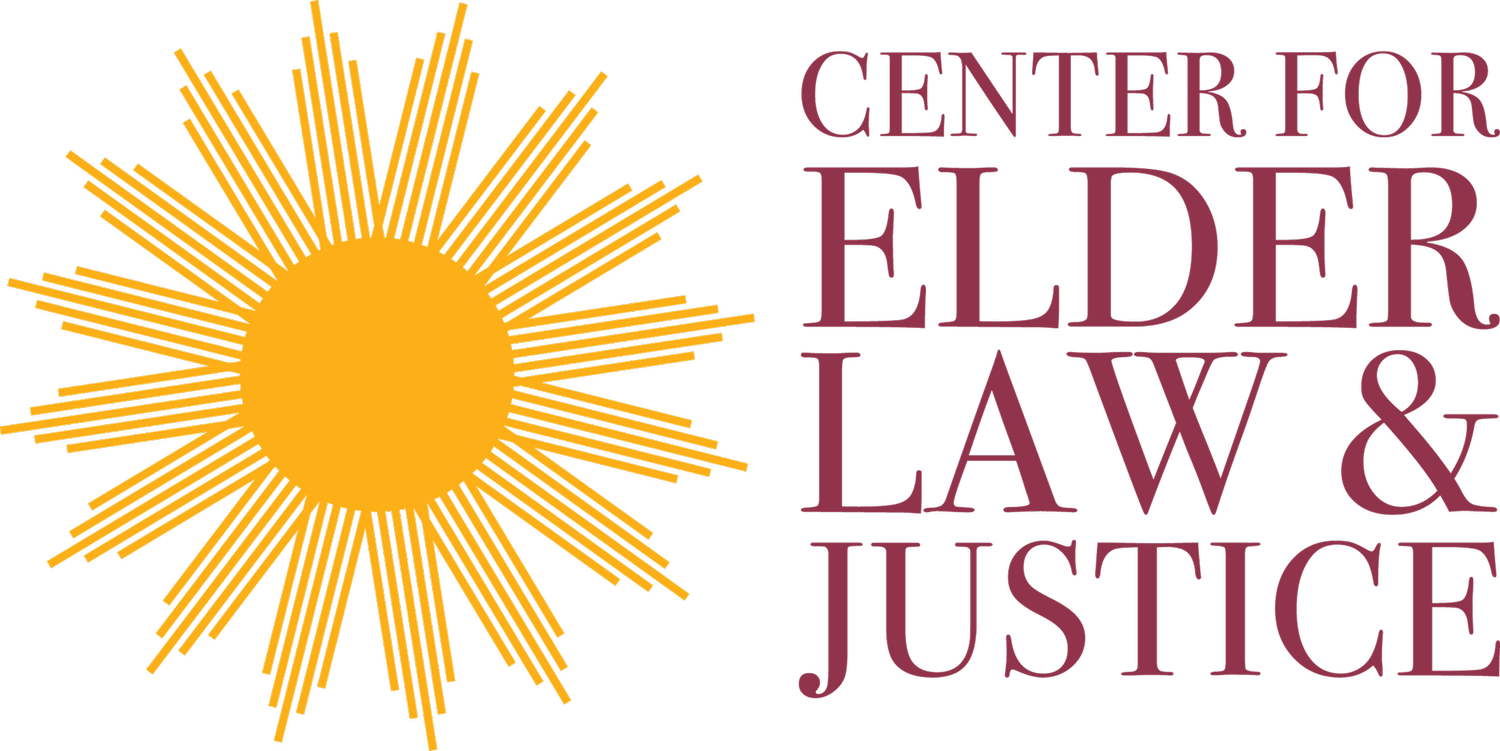Adult Guardianship Basics
Introduction to Adult Guardianship under Article 81 of the Mental Hygiene Law
Adult Guardianship is a legal process used to support individuals who are unable to make decisions or manage affairs for themselves. A judge appoints a guardian, after a proceeding in court. In New York State, there are generally two different types of adult guardianships, each designed to serve specific populations. These guardianships include the following:
Article 17-A Guardianship – governed by Article 17-A of the Surrogate’s Court Procedure Act. Article 17-A appoints a guardian for adults (age 18 or over) who are intellectually or developmentally disabled. Covered disabilities include cerebral palsy, epilepsy, a neurological impairment, autism, a traumatic head injury. For more information, including how to a file a petition, see The New York Courts: Court Help website.
Article 81 Guardianship – governed by Article 81 of the Mental Hygiene Law. Article 81 Guardianships are for incapacitated adults. Article 81 Guardianships permit a court to “tailor” a Court Order, allowing for only those powers that a person needs.
This blog post will focus on Article 81 Guardianships.
Guardianship Frequently Asked Questions
What Powers May A Guardian Exercise?
The court will decide whether a guardian should be appointed to make decisions about the personal needs, the property management or both. The court order appointing a guardian will list the things the guardian can do. The types of things that a guardian may do include making medical decisions, choosing where the person should live, choosing who will take care of the person, paying bills, signing contracts, and entering into financial transactions. The guardian does not have power to do things that are not listed in the court order. Regardless of the powers granted, an Article 81 Guardian does not have the authority to compel the person under guardianship to comply with certain health care and medications.
How Does a Guardian Get Appointed?
A guardianship proceeding begins with the filing of a “petition” in court. A petition is a legal document that explains the facts showing a need for a guardian, and requests the appointment of guardian to make decisions. The judge will receive information and evidence about the case before they decide whether a guardian is appropriate. A person subject to a guardianship proceeding retains due process rights throughout the duration of the proceeding and after.
Do I Need an Attorney to File a Guardianship Petition?
Not necessarily. Any person who is concerned for the welfare of another can file a guardianship petition. Though an attorney is not required, having one is highly recommended, to help navigate this complicated process.
Who Can File an Article 81 Petition?
Any person who is concerned for the welfare of another individual can file for Article 81 guardianship. This can even include an individual petitioning for guardianship for themselves.
Who is Involved in an Article 81 Guardianship?
An Article 81 Guardianship consists of the following parties:
The Court (Judge) – a judge in the New York State Supreme Court or the County Court (if outside of New York City) of the County where the individual resides will hear the case.
The “Petitioner” – the person who files the guardianship petition, alleging a need for a guardian (oftentimes through a lawyer).
The Alleged Incapacitated Person or “AIP”– the individual who allegedly needs a guardian.
The Attorney for the AIP - the Court can appoint an attorney to represent the AIP during the guardianship proceedings, or the AIP is free to hire an attorney of their choosing.
The Court Evaluator – the “eyes and ears” of the Court. This person, who is often a lawyer, will review records, interview the AIP and interested parties, and make recommendations to the Court.
The Court Examiner – reviews and approves the Guardian’s annual reports. The Court Examiner provides continued oversight over the Guardian, on behalf of the Court.
Other interested parties – this can include family members, proposed guardians, and other parties who are interested in the proceedings.
Who Can Serve as Guardian?
Any person over the age of 18 can serve as guardian. A not-for-profit agency can also serve as an Article 81 Guardian. In some cases, the local Department of Social Services may serve as the guardian where there is no one else to act.
When Is A Guardian Appointed?
The Court will appoint a guardian where an individual needs assistance providing for their personal needs or property management. A guardian can be appointed if the individual either consents to the appointment, or is otherwise deemed to be “incapacitated.” The term “incapacitated” means that an individual is likely to suffer harm because (1) they are unable to provide for their personal needs or property management, and (2) they cannot understand the consequences of their inability to manage their own needs.
What If I Don’t Agree With the Need for A Guardian?
If you are the AIP in a guardianship proceeding, you can have an attorney appointed to represent your interests, or you can hire an attorney of your own choosing. If you are an interested third party, you can also work with an attorney to help present your perspective to the Court.
What Responsibilities Will a Guardian Have?
A guardian has a duty to act in ways that will benefit the individual under guardianship. The guardian will have to abide by the court order, and must always endeavor to serve the individual in the “least restrictive” manner as possible. The guardian will have to secure special documents called a “Commission” and “Designation.” A Commission outlines the powers granted to a guardian. A Designation is a document that specifies that the clerk of the court can be served with court documents if the guardian cannot be located. The guardian will also have to file an Initial Report within 90 days after the Commission is issued. After that, the guardian will have to file an Annual Report, due each year at the end of May. All throughout this process, the guardian must visit the individual regularly (at least 4 times per year), attend to the individual’s needs and ensure their safety, and prudently manage the individual’s finances.
Is a Guardianship Permanent?
A guardianship will typically last for the duration of a person’s life. However, a guardianship can be terminated if the individual no longer needs a guardian. Only a Court can terminate a guardianship.
What Are Some Alternatives to Guardianship?
Power of Attorney (POA) – a legal document that allows a trusted individual (called an “agent”) to help manage the property and finances of an individual (called the “principal”). A principal must have the capacity to complete a POA, meaning an understanding of what the document entails.
Health Care Proxy (HCP) – a legal document that allows a trusted individual (called a “health care agent”) to make medical decisions for an individual (called the “principal”). The principal must have the capacity to sign the HCP during its completion. The HCP will only trigger when a medical professional determines that a principal lacks the capacity to make medical decisions.
Representative Payee – appointing a trustworthy person to manage Social Security benefits on behalf of an individual. More information can be found online at https://www.ssa.gov/payee/.
Supported Decision-Making – an informal tool used to help individuals make decisions by eliciting support from trusted advisors, such as friends, family members, and professionals.
Where Can I Go for Help?
If you are looking to have a guardian appointed for yourself or another person, you may wish to contact a private attorney to discuss this process. Many local bar associations have lawyer referral services where you can find the names of attorneys specializing in these areas.
If you are a Court-Appointed Article 81 Guardian in Western New York, the Center for Elder Law & Justice’s Family Guardian Support Project can provide further assistance. The Family Guardian Support Project provides technical assistance and trainings to family members, friends, or other lay guardians. Contact us for more information.
Questions? Residents of New York State can contact us at (716) 853-3087.
The Family Guardian Support Project is a program of the Center for Elder Law & Justice, with support from the Ralph C. Wilson, Jr. Foundation, and Foundation 214, Inc. Foundation 214, Inc. is a family-funded foundation engaged in serving Veterans of the US Military, children, and elderly in healthcare and education within the eight counties of Western New York.

